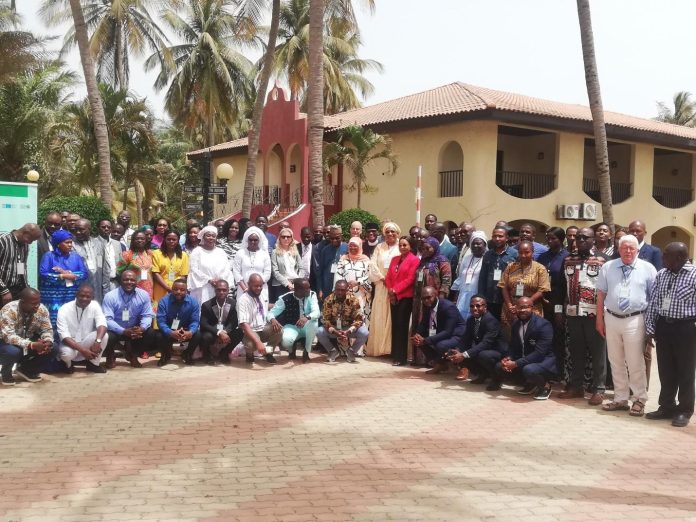By Madiba Singhateh
The Malaria Research Capacity Development Consortium (MARCAD) in West and Central Africa, in partnership with the Medical Research Council Unit, The Gambia at the London School of Hygiene and Tropical Medicine (MRCG at LSHTM), convened a three-day conference from May 6th in Banjul to address the growing burden of Neglected Tropical Diseases (NTDs) in Africa—particularly those that coexist with malaria.
The high-level gathering brought together leading researchers, principal investigators, public health experts, fellows, and key stakeholders from across The Gambia, Senegal, Mali, Ghana, Cameroon, Sierra Leone, Guinea-Bissau, and beyond. Participants reflected on progress, shared experiences, and explored collaborative strategies to tackle malaria and NTDs more effectively.
The conference’s central objective was to explore sustainable strategies to eradicate malaria transmission in the region, where progress has varied significantly both within and between countries. While some nations are nearing malaria elimination, others still face high transmission rates exacerbated by parasite and vector resistance, climate change, residual transmission, and disease outbreaks. NTDs—especially schistosomiasis and soil-transmitted helminths—remain prevalent and often overlap geographically with malaria.
MARCAD Plus, the second phase of the MARCAD program, is supported by the Wellcome Trust and the UK’s Foreign, Commonwealth & Development Office (FCDO), in partnership with the Science for Africa Foundation (SFA). Established in 2015, MARCAD is a network of African research institutions that support collaborative research led by Africa-based scientists.
Dr. Oumar Gaye, Director of MARCAD, said the conference provided a unique opportunity for fellows and partners—many of whom had only interacted virtually—to connect in person.
“This is a big opportunity to have face-to-face meetings despite knowing many of them from the first phase of MARCAD. This is the second phase, and we now have new fellows and institutions,” Dr. Gaye said.
He noted that MARCAD began with five partner institutions from Ghana, Senegal, The Gambia, and Cameroon. The second phase, MARCAD Plus, now includes seven institutions. While MARCAD 1 received more funding, MARCAD Plus supports a greater number of fellows—between 35 and 40—compared to just 15 in the first phase.
Other speakers included Alfred Nawa from MRCG, Dembo Kanteh, Head of Strategic Partnerships at MRCG, and Dr. Halima Abdallah, Chair of MARCAD Plus. They each emphasised the vital role the initiative plays in strengthening health research systems and building African scientific capacity.
MARCAD Plus continues to focus on capacity building for Master’s, PhD, and postdoctoral researchers in the thematic areas of malaria control and elimination, as well as the prevention and treatment of NTDs across West and Central Africa.


















